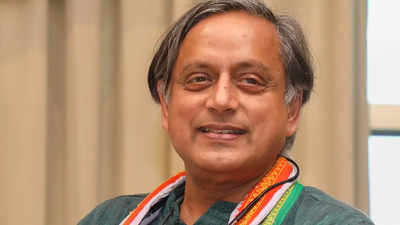The All India Congress Committee has adopted a resolute position regarding Congress Member of Parliament Shashi Tharoor’s role within the party. Despite Tharoor’s attempts to seek clarity and express grievances, party leadership, including Rahul Gandhi, has refrained from addressing his concerns, leading to growing dissatisfaction and uncertainty about his future in the organisation.
Tharoor, representing Thiruvananthapuram, recently engaged in discussions with Rahul Gandhi, aiming to resolve issues related to his perceived marginalisation within the party. Sources indicate that during these meetings, Tharoor articulated his desire for a well-defined role and sought acknowledgment of his capacity to represent the party’s stance effectively in parliamentary debates. However, Gandhi reportedly declined to commit to any specific position or address Tharoor’s grievances, signalling the AICC’s unwillingness to adopt a lenient approach towards the senior leader.
The roots of Tharoor’s discontent trace back to his removal from the leadership of the All India Professionals Congress , an organisation he founded in 2017 to engage working professionals and entrepreneurs in the political process. In November 2023, Praveen Chakravarty succeeded Tharoor as the president of AIPC, a move that Tharoor perceived as a diminution of his influence within the party. This leadership change, coupled with his exclusion from key parliamentary debates, has exacerbated his sense of being sidelined.
Adding to the tension, Tharoor faced criticism from Kerala Congress leaders following an article he authored, which lauded the state’s startup initiatives. Detractors argued that his remarks inadvertently endorsed the ruling Left Democratic Front government, leading to internal discord. In response, Tharoor clarified that his comments were based on data from think tanks and were not intended as an endorsement of the LDF administration. Despite this clarification, the incident contributed to the perception of Tharoor’s estrangement within party ranks.
The AICC’s current stance appears to be a departure from previous approaches, where internal dissent was often managed through conciliatory measures. In Tharoor’s case, the leadership’s reluctance to engage with his concerns suggests a strategic decision to assert authority and discourage public expressions of discontent. This development raises questions about the party’s internal dynamics and its approach to managing divergent viewpoints among its senior members.
Tharoor’s political journey within the Congress has been marked by both prominence and controversy. In 2022, he contested the party’s presidential election, positioning himself as a candidate advocating for internal reforms and rejuvenation. Despite his efforts, Mallikarjun Kharge secured a decisive victory, reflecting the establishment’s preference for continuity over change. This electoral outcome, combined with subsequent events, has contributed to Tharoor’s current predicament.




 Former Brazilian President Jair Bolsonaro May Face Life Term In Jail
Former Brazilian President Jair Bolsonaro May Face Life Term In Jail 